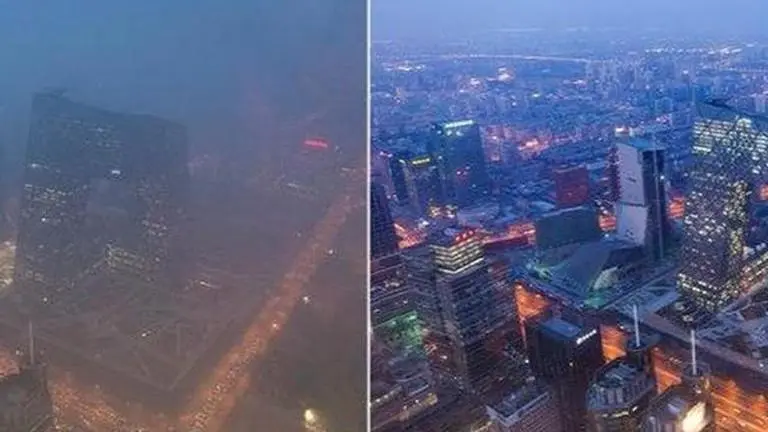Updated 13 September 2019 at 15:50 IST
Delhi Pollution: Measures taken by other countries to combat pollution
Delhi Pollution is expected to reduce by 13-15% says CM Arvind Kejriwal after he announced that the odd-even vehicle rule will return to Delhi from November 4
- India News
- 4 min read

Chief Minister of Delhi Arvind Kejriwal, on Friday, amid rising pollution level has announced that the odd-even vehicle rule is all set to return to the national capital from November 4 to November 15. He also said that this move is expected to reduce pollution in Delhi by 13-15%. Kejriwal also mentioned that he has received a lot of suggestions for pollution control from the public and taking these suggestions into consideration, the government has come up with a seven-point action plan.
Measures taken by Delhi government to curb pollution
The Delhi government has come up with its seven-point action plan, that has identified 12 spots across the national capital, which witnesses high levels of pollution. According to Kejriwal, special attention would be paid to these areas and a separate plan will be made for them. He also said that the government will procure N95 category masks for the public on a massive scale and that they will be made available to the public, free of cost in October.
Additionally, a massive plantation drive is also scheduled to be undertaken and a helpline number will also be released to ensure saplings are delivered to the people in their homes. After the ban by the Supreme Court on the sale of crackers in the national capital. The Chief Minister said that on the eve of Chhoti Diwali, the government is planning to organize a laser show and has urged the public to gather in huge numbers to enjoy the show rather than bursting crackers.
Advertisement
Measures taken by other countries to curb pollution
According to a report, research by UN Environment and the Beijing Municipal Ecology and Environment Bureau (BEE) outlines how Beijing’s air quality management program has evolved and makes recommendations for near, medium, and long-term steps that Beijing can take to maintain its momentum toward clean air. In 1998, air pollution in Beijing was dominated by coal-combustion and motor vehicles and major pollutants exceeded national limits. By 2013 levels had fallen and some pollutants, like carbon monoxide and sulfur dioxides, met national standards. In 2013, Beijing adopted more systematic and intensive measures. By the end of 2017 fine particulate pollution (PM2.5) had fallen by 35 per cent and by 25 per cent in the surrounding Beijing-Tianjin-Hebei region.
Advertisement
Similarly, Tokyo has played a significant role in setting air-quality standards for Japan. Japan began tackling its pollution problem back in the 1970s when particulate matter levels in the air (PM2.5) reached dangerously high levels around all the major cities. Japan is now a leading contributor to the G7 group in renewable energy and pollution beating technology. Working with the private sector, the city reduced the emissions of soot and other harmful substances by investing in renewable technologies. However, perhaps Japan believes that one of the biggest ways the city has tackled pollution lies in its adoption of hydrogen power. With the Olympics approaching in 2020, Tokyo continues to monitor its air quality closely, utilizing stations positioned strategically around the city. With PM2.5 levels averaging at 13.8 (moderate) and below, the government is confident it can cut emissions even lower.
India joins the Climate and Clean Air Coalition
Earlier this year, India has formally joined the Climate & Clean Air Coalition (CCAC), becoming the 65th country to join the partnership, following through on a commitment made by the country’s newly-appointed Minister for Environment, Forest and Climate Change, Prakash Javadekar, during World Environment Day celebrations. According to the UN Environment Programme, India plans to work with Climate Clean and Coalition countries on best practices and experiences for the effective implementation of India’s National Clean Air Programme (NCAP). The NCAP is a comprehensive strategy with actions to prevent, control and reduce air pollution and improve air quality monitoring across the country.
Published By : Varsha Chavan
Published On: 13 September 2019 at 14:06 IST
